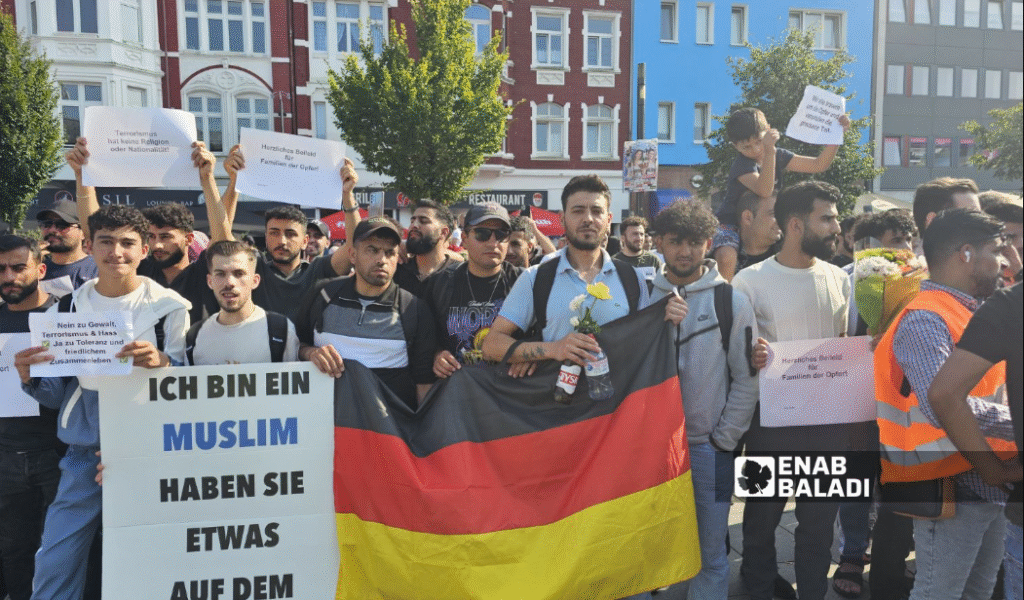Germany is home to the largest Syrian community outside the Middle East, with about 1.28 million people of Syrian descent living in cities like Berlin, Munich, Cologne, and Hamburg. Since protests and violence erupted in Syria’s Suwayda region where attacks targeted the Druze and Alawite minorities the effects have spilled into German neighborhoods.
German Syrians Speak Out and Call for Unity
In response, many Syrian-born residents and community leaders in Germany have spoken out. In Solingen, after a knife attack by a Syrian national, dozens of Syrians held a vigil and emphasized that criminals should not represent entire communities. They expressed solidarity with German victims and said Syrians in Germany have contributed positively as doctors, engineers, workers, and neighbors.

Groups like the 9th-of-the-month movement and Syrian activists organized silent vigils in Berlin, calling for inclusive governance in Syria and rejection of sectarian violence and foreign interference. These efforts aim to remind people of the original values refugees brought peace, justice, and coexistence.
Fear, Disinformation and Rising Hate in Germany
Meanwhile, hate crimes and anti-immigrant sentiment have surged, especially in cities like Magdeburg and Thuringia. After a deadly attack in Magdeburg over the winter, racist threats, verbal assaults, and physical violence toward migrants rose sharply. Many say they feel abandoned by political leaders and even abandoned by police.
Politicians from conservative and far-right parties have called for suspensions of asylum processes for Syrians, with some urging quick deportations. Germany temporarily froze asylum application processing for nearly 47,000 Syrians due to uncertainty about the safety of returning home after Syria’s Assad regime fell. These actions have heightened fears of being scapegoated.
Germany’s Official Stance: Unity and Accountability
The German government has strongly condemned the recent wave of communal violence in Syria, urging all parties involved to take immediate steps to prevent further bloodshed. In particular, Foreign Minister Annalena Baerbock and Chancellor Olaf Scholz have emphasized the urgent need for inclusive governance, the protection of minority groups, and progress toward transitional justice in the war-torn nation.
Meanwhile, within Germany, the Syrian diaspora now faces a double burden mourning the tragedies unfolding in their homeland while also coping with growing tensions in their host country. As news of the violence spreads, misinformation, radical rhetoric, and online hate speech have started to deepen divisions.
At the same time, the German government must walk a delicate line maintaining effective and fair migration policies while offering meaningful support and security to its Syrian refugee population. As Germany continues to promote peace abroad, it must also ensure unity and mutual understanding at home.


 Trump Praises Syrian Leader in Historic Meeting
Trump Praises Syrian Leader in Historic Meeting  Israel to attack southern Syria
Israel to attack southern Syria